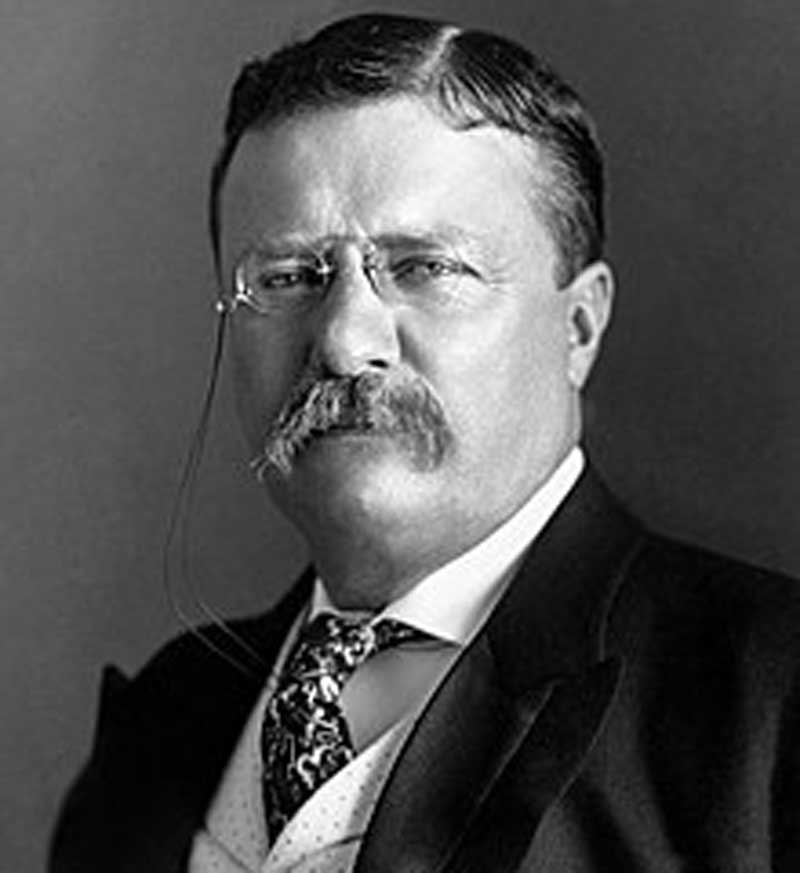Standards of Duty and Honor

According to Romans 13, governments are ordained by God for the public good. Among the benefits of a just government we surmise from the Commandments are the protection of life, property, and responsible freedom. Governments are given the power of the sword to assure its ordained purposes are sustained. That sword may be used to enforce its ordained purposes within the limits of its geographical sovereignty or to defend itself and its people from foreign intrusion or harassment. War is thus sometimes necessary to maintain peace, safety, justice, and liberty. Categorical pacifism is unbiblical, unrealistic, and unloving. Categorical isolationism is also unrealistic, shortsighted, and lacking in moral depth.
The concepts of Just War Doctrine were developed principally by the Christian churches on biblical grounds, but many aspects of Christian Just War Doctrine can also be found in Jewish, Greek, Roman, and even Celtic and Germanic warrior societies. For example, within Viking societies, it was considered disgraceful for the strong to take advantage of the weak.
There are a number of criteria for a just war, but the most essential is that it must be for a just cause. That would include protecting, restoring, or recovering a nation’s territorial integrity, the identity of its people, and its legitimate government—as well as the lives, properties, and freedoms of its citizens. In actual practice the concept of Just War is sometimes complex on its fringes. Certainly, state sponsored terrorism is unjust war, and defensive and even preemptive measures against state sponsored terrorism would be just.
The Christian concept of war requires not only a just cause but also just conduct and just means in its prosecution. A principal requirement of just conduct is that military action must discriminate between combatants and noncombatants. Targeting innocent civilians or their private property is an unjust means of warfare. Just conduct requires that noncombatants, prisoners of war, and wounded be treated humanely. The food supplies, shelter, clothing, medical supplies, harmless personal properties, and peaceful means of livelihood of noncombatants should be respected. Any military means and action must also be proportionate to the threat. Minor incidents do not justify massive retaliation.
Americans should note with appreciation and satisfaction President Donald Trump’s decision not to take a disproportionate action against Iran’s recent shooting down of a U.S. drone.
Many people familiar with the Bible may recall that God ordered on several occasions the destruction of entire tribes. But such decrees belong to an all-wise and perfectly just God alone and most emphatically not to human leaders. Total War decreed and practiced by human leaders finds no sanction in the Bible.
Augustine (354-430 AD) developed what is generally recognized as the first systematic treatment of Christian doctrine as it applies to the State, its citizens, and its soldiers in time of war. Augustine was obviously also influenced by the realities of war experienced throughout the Roman Empire. First of all, Augustine recognized that war is often a necessity to defend the State and its citizens from aggressive enemies and that Christians may justly bear arms in that defense. He rejected categorical pacifism as unbiblical and unloving.
Augustine outlined three main criteria for a just war: it must be initiated by properly constituted authority, it must be for a just cause, and it must be conducted by just means. To Augustine, the just end to war should be a just peace. Who then determines what are proper authority, just cause, and just means? Augustine’s answer: God, as revealed in Scripture. Practically, those who constitute proper authority decide these issues on behalf of the citizenry, but these authorities are also ultimately accountable to God and therefore the teachings of Scripture. Thomas Aquinas and many others since have attempted to flesh out a more comprehensive Just War Theory, but the tragedy of war always generates many ethical loose ends.
In the United States, Congress has the constitutional authority to declare war. Recent history and realities, however, have caused Congress to recognize that modern weapons of lightning speed and mass destruction and protection of human life and essential national interests may necessitate urgent response by the President or his successor. Therefore, the President has been given limited war powers for which he is ultimately accountable to Congress and the people.
Most Frequently Listed Principles of a Just War
- Just Cause—generally defensive or correcting a grave wrong.
- Initiated by Properly Constituted Authority. (In the U.S. this is Congress with the President having limited emergency war powers.)
- Just Means and Conduct—a distinction must be made between combatants and non-combatants. Senseless cruelty and wanton destruction are prohibited.
- Goal must be a just peace. (Therefore allied nations should not be abandoned to slaughter or brutal tyranny.)
- Proper Jurisdiction—Evils corrected must be within legitimate sovereignty.
- Last Reasonable Resort—Reasonable exhaustion of attempts to settle differences peacefully.
The Most Frequently Listed Principles for Conducting a Just War:
- Non-combatants should never be deliberate or primary targets of military action.
- Prisoners of war must be treated humanely and respectfully.
- Torture of prisoners of war or non-combatants is prohibited.
- Force used must not be disproportionate to objectives, harm done, or threats.
- Avoidance of senseless cruelty and all evil means (even for a just cause).
- As much as possible, the enemy must be treated in good faith to keep open the possibility of reconciliation.
- The end of war should be a just peace. (Therefore allied nations should not be abandoned to slaughter or brutal tyranny for the sake of “peace.”)
In the last several centuries, Western nations have adhered fairly closely, but by no means consistently, with the Christian concept of just conduct in war. Just cause has perhaps more often been bent to political expediency. Negotiation alone is seldom an effective response to aggressive actions and invasion by enemy nations. In 1864, the first Geneva Convention on the conduct of war helped to raise a common international standard by international treaty. However, the United States was not a signatory to the 1864 Geneva Convention. The United States became a major participant at the Hague Conventions in 1899 and 1907, the latter being called for by U.S. President Theodore Roosevelt.

The United States has strongly adhered to Geneva Convention codes since then, but it has not always been consistent. Union Forces during the Civil War had the Lieber Code (General Order Number 100), signed by President Lincoln on April 24, 1863, that dictated how soldiers should conduct themselves in wartime. However, Lincoln, Secretary of War Edwin Stanton, the Radical Republican dominated Joint Committee on the Conduct of the War, and many high ranking Union officers wantonly violated just war conduct principles, beginning in Missouri during the early days of the war and extending through Sherman’s march through Georgia and South Carolina and into the Reconstruction years.
Confederate forces, with only a few exceptions, conducted military operations according to the Western and Christian tradition of just conduct and means. Union forces, however, soon began a systematic escalation to a Total War concept. Total War differs from the Christian concept of limited war in its erosion of the distinction between combatants and noncombatants. Total War is war on an entire society, often escalating by degree according to military or political expediency or desire for vengeance on a demonized enemy. Total War pursues victory and dominance by whatever means with little regard to moral or humanitarian considerations.
General William T. Sherman, perhaps the most famous practitioner of Total War, summed up the Total War philosophy that prevailed in Washington:
“This war differs from other wars, in this particular. We are not fighting armies but a hostile people and must make old and young, rich and poor, feel the hard hand of war.”
Southern civilians, especially Southern women, were adamantly unsympathetic to Northern invasion and occupation of the South. Sherman, who believed that “fear is the beginning of wisdom,” thought it very important to humble the South and put a fear and dread of Union might and power in their hearts. In June 1864, he wrote to like-minded Secretary of War Edwin Stanton that:
“There is a class of people, men, women and children, who must be killed or banished before you can hope for peace and order.”
Since then, however, the United States has been one of the most vigorous and consistent supporters of the Geneva Convention and Just War Doctrine. A state of war, however, does not lend itself to complete control. Effective military action governed by just moral conduct requires adherence to accumulated wisdom, sound judgment, and strong moral leadership.









 Mike Scruggs is the author of two books: The Un-Civil War: Shattering the Historical Myths; and Lessons from the Vietnam War: Truths the Media Never Told You, and over 600 articles on military history, national security, intelligent design, genealogical genetics, immigration, current political affairs, Islam, and the Middle East.
Mike Scruggs is the author of two books: The Un-Civil War: Shattering the Historical Myths; and Lessons from the Vietnam War: Truths the Media Never Told You, and over 600 articles on military history, national security, intelligent design, genealogical genetics, immigration, current political affairs, Islam, and the Middle East. 


